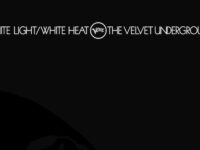The Buckfever Underground’s new outing, Voortvlugtend, opens with a stomper. Joined by guest vocalist Jaco Van Schalkwyk, Toast Coetzer’s oddly hypnotic spoken-word delivery – a staple of this South African cult-favorite band – seems to culminate in a friendly wrestling match.
In contrast to Coetzer’s stoically maintained monotone, Van Schalkwyk’s contribution eloquently flails through its invented harmonies – sometimes dipping away from earshot altogether, sometimes gnashing teeth, occasionally entering exotic vocal scales. Meanwhile, the rhythm section seems to be physically attacking each other out back. It works like a sudden, strange dream. “Die Ou Transvaal (The Old Transvaal),” the track involved, is haunting and haunted, seemingly caught in the act of exorcising itself.
Instrumentally, the Buckfever Underground wields a signature sound from which they may stray momentarily, as whimsy guides, but which remains an essence or magnetic field they perpetually hone back in on. Disjointed ambient music sometimes swells into a kind of decaying math rock – but not math rock at all. Instead, it’s organic mathematics where the numbers bulge and bleed out of their categorical confines: A space ripe with synesthesia and amnesiac progressions and disillusionment with the clean purity of strict patterns.
Guitarists Gilad Hockman and Righard Kapp’s playing seems always somehow somnambulant and simultaneously aquatic, ambling in underwater dreamscapes flecked with odd colors – now sudden bursts of ominous bright, now slow deep currents of lament, or forgetting.
If the basic major chord is said to evoke emotions of cheer, the Buckfever Underground are firmly, and knowingly, seated in the realms of minor chords; but because this is their chosen canvas, or context, they are able when so desiring to bring wellsprings of idiosyncratic joy or weird celebration into frame, as in the strangely beautiful swell of “The Last Days of Beautiful.”
Toast Coetzer’s lyrics are poems in their own right. Stripped of the instrumental components, each album can be said to be a volume of verse. His writerly voice is distinct: Frequently employing a kind of everyday surrealism, Coetzer creates sometimes heart-tugging imagery, but without a crumb of kitsch, frequently staking out visually intriguing geographies. (He is very fond of places and areas, steeped as they are in history emotive or otherwise.)
He also has a penchant for suddenly inserting lists – vagabond lists full of uncomfortable and unlikely neighbors – into his lyrics, or will decide to settle on a mantra, as in “I Retweeted a Tweet” where the entirety of the song’s lyrics are “I retweeted a tweet / that you were mentioned in.” Due to the band’s ever-shifting soundscapes and sonic temperaments, however, his fondness for repetition is never monotonous, given as it is presented on shifting canvases of rhythm and melody, of mood.
“Albatross,” centerpiece of the Buckfever Underground’s Voortvlugtend, is a behemoth of a track, a strange voyage experienced by a narrator whose visions and descriptions are at once comic and disconcerting and incongruent and suddenly crisp yet romantic. The guitar/s slip and slide around his words, now becoming fish flitting around the large ship, now emoting or counter-emoting his words. The track ends with a touching and arresting description of the seas and the titular bird, encasing the listener in fresh wonder.
“Are You Here to Carry My Eyes” finds Toast Coetzer employing a lullaby-like sing-song vocal of lost or found love over a gently undulating backing. Voortvlugtend wraps up with a tiny, piano-led paean to a loved one entitled “Oggendgebed (Morning Prayer),” gently ushering in the end of an excellent release that begs for repeated listening – preferably wearing big, scruffy earphones.
- How the Pixies Changed Everything With ‘Surfer Rosa’ - July 12, 2023
- Frank Zappa – ‘Funky Nothingness’ (2023) - June 30, 2023
- How Jim White’s ‘Wrong-Eyed Jesus!’ Changed My Mind About Country Music - June 14, 2023



